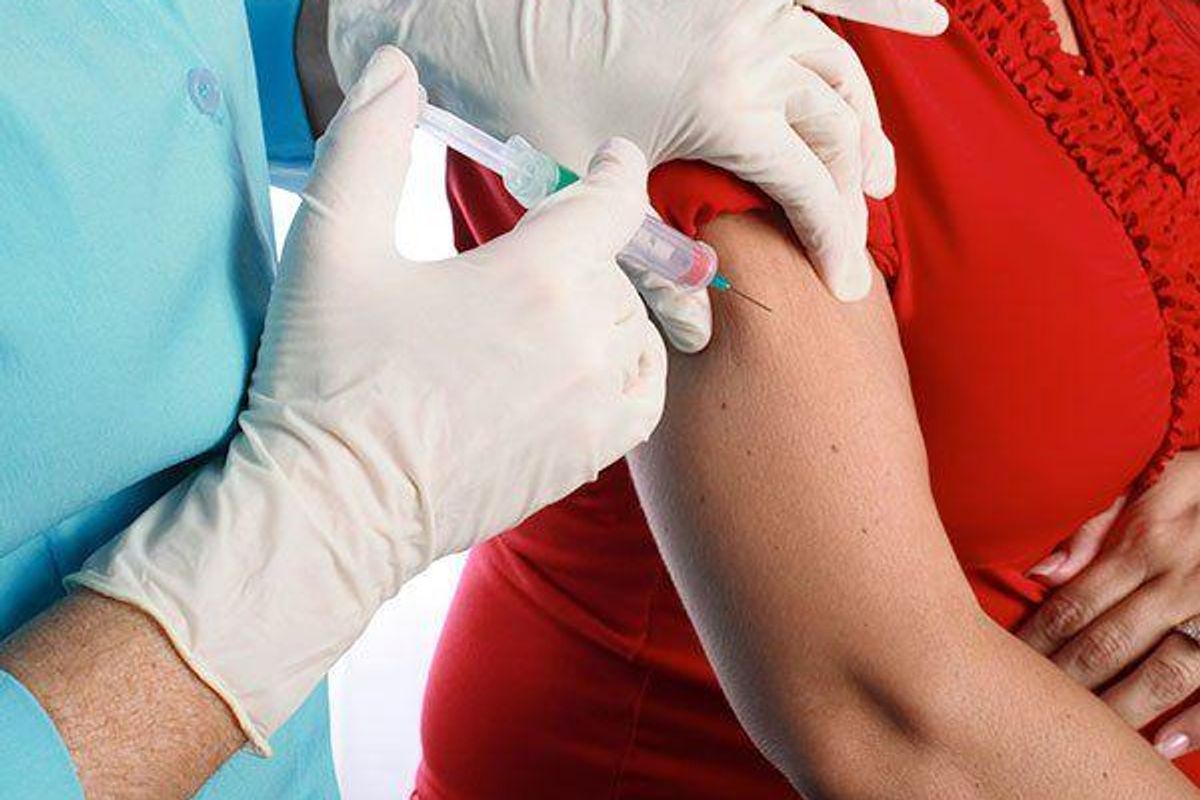
TUESDAY, Nov. 1, 2016 (HealthDay News)—The Tdap (tetanus, diphtheria and pertussis) vaccine is safe for pregnant women who hope to pass their immunity on to their newborns, a new study shows.
The vaccine does not appear to cause birth defects or any other major health problems for a developing fetus, according to a review of more than 324,000 live births between 2007 and 2013.
"We basically showed there is no association between receiving the Tdap vaccine during pregnancy and these congenital [birth] defects, including microcephaly," said lead researcher Dr. Malini DeSilva. She is a clinical investigator for HealthPartners Institute in Minneapolis.
The study is part of ongoing efforts to monitor the safety of vaccines, DeSilva said. Her center is part of the Vaccine Safety Datalink, a collaborative project led by the U.S. Centers for Disease Control and Prevention that includes health care organizations across the nation.
The Tdap vaccine has been recommended for unvaccinated pregnant women since 2010 in California, and since 2011 across the United States, researchers said in background information.
Babies can't receive the vaccine that protects against these diseases until they are 2 months old, DeSilva said. Until they do, they have a high risk of contracting whooping cough (pertussis).
"In between the time they're born and their 2 months' visit, they don't really have any protective antibodies other than what has passed through the placenta," DeSilva said. "There have been some studies that show there is an increased chance of passing these antibodies when the mother gets this vaccine."
For their review, researchers included data from live births at seven Vaccine Safety Datalink sites, including northern California, southern California, Colorado, Minnesota, Oregon, Washington and Wisconsin.
The investigators analyzed births from these areas when Tdap vaccination became recommended for pregnant women, and compared the results to what occurred prior to the recommendation.
The researchers found that maternal Tdap inoculation wasn't significantly associated with increased risk for any major birth defects in vaccinations occurring at less than 14 weeks' gestation, between 27 and 36 weeks' gestation, or during any week of pregnancy.
Dr. Amesh Adalja is a senior associate with the University of Pittsburgh's UPMC Center for Health Security. He said, "This study illustrates the safety of maternal Tdap vaccination and the lack of an association with any birth defects." Adalja was not involved with the new report.
"Vaccination of pregnant women with this vaccine is an important aspect of protecting neonates from pertussis, a potentially fatal condition," Adalja added. "This study should reassure physicians and patients and hopefully increase vaccination rates in pregnancy."
The study was published Nov. 1 in the Journal of the American Medical Association.
SOURCES: Malini DeSilva, M.D., M.P.H., clinical investigator, HealthPartners Institute, Minneapolis; Amesh Adalja, M.D., senior associate, University of Pittsburgh's UPMC Center for Health Security; Nov. 1, 2016, Journal of the American Medical Association
Copyright © 2016 HealthDay. All rights reserved.
Published: November 2016







